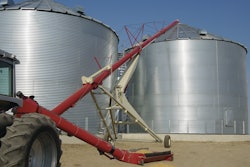
Back when I was actively merchandising for an elevator, I remember sitting in a large room full of my peers listening to the late Don White talking about the keys to being a successful merchandiser. There were several things on the list, but he ended it adamantly with “selling is everything.”
Despite my tremendous respect for Don White, I have to admit that I did not totally buy in at the time. There are so many things that go in to being a successful merchandiser: having a good origination program, enforcing appropriate polices, managing spreads and optimizing logistics seemed so integral to my bottom line that putting selling as the end-all priority seemed preposterous.
To this day I would say that statement is exaggerated, but as I work with other elevators and reflect on my experience, I realize that I may not have given proper attention to honing my selling skills. Like many merchandisers, I based my selling decisions on many factors: margin, logistics, basis history and basis trends to name a few. But my main determinant was instinct.
I always tried to keep my finger on the pulse of the buyers I worked with and at some point, taking all things into consideration, it just felt like it was time to make a sale. When I talked myself out of one of these sales, I almost always looked back later and saw missed opportunity.
My other downfall? I almost never sold as much as I should have (holding out for a better sale to sell more). Now that I work closely with many elevators, I am finding that I was not unique. Merchandisers certainly make sales that they end up regretting, but I observe it to be so much more common to regret the sale they did not make or not selling more.
When it feels like the right time to sell, it often is.
Here are a few things that I have observed can help make you a better seller.
Know your role
Price neutrality is the key to being a grain producer’s ally, but it is also key to being the preferred grain supplier to end users. You are always willing to sell regardless of the action in the futures market. This makes you invaluable to both cash sensitive buyers and basis trading buyers when cash sensitive producers are not playing ball. It was not uncommon for me to take calls from farmers at the elevator asking what we were paying for corn. Excited about the possibility of buying some grain, I would be frustrated to learn that sometimes they were just looking for a price to buy corn from their neighbor to feed livestock. Eventually I realized, they were calling me as their expert in the value of corn and that someday that they may need corn when their neighbor was no help.
This awareness of my role in the market changed my outlook toward these calls and moved me to make sure they knew we were a willing buyer and seller when we were needed. We have great value to all grain buyers as we can provide volume and the constant supply that is hard to achieve from cash sensitive sellers.
Build relationships
Grain buyers are your customers. While it can be frustrating when commercial buyers compete for farmer bushels, it helps to put aside any feelings of competition when selling. Remember we are providing them a service and want to be on the list of people to call when they need grain. Get to know your buyers and make sure they know what you have to offer.
Know your buyers’ motivation
Not all buyers have the same motivation. One obvious division is between cash sensitive buyers and basis traders, but that is not the only one. I used to sell to processors and river terminals. A buyer for a processor or feeder has a simple job. Buy enough grain to keep things running as cheap as you can. Early in my career I was taught that if a buyer at a processor pays too much for grain, they may get in trouble, but if they run out of grain, they get fired. At times a buyer for a processor will be forced to pay above current market value if they do not have enough grain bought. Buyers at a river terminal (or rail loader) on the other hand, want to buy all the grain that they can handle and make money on. Unless they are short on grain to fill a barge or train, they have no desire to buy any grain they do not expect to make a margin on.
Understanding the needs and motivations of different buyers will make you better prepared in your negotiations.
Know your market
Who’s normally the market leader in the area? How does one buyer’s bid normally compare to another? Where are the truck lines longer or shorter than normal? Which buyers prioritize proactive buying and which ones tend to live in the spot market? Knowing the intricacies of your local market will help you quickly identify when things are out of whack which may indicate an opportunity. It also helps your credibility in negotiations with buyers when it is apparent that you know what is going on.
Don’t let a set margin drive your decisions
The commercial grain industry commonly reminds farmers that the market does not care how much it costs them to grow a crop. Likewise, basis movement does not care what your buy basis is. Try to objectively evaluate how much basis may improve in your market as opposed to taking your ownership plus some arbitrary number to determine a selling goal. The latter plan tends to lead to leaving opportunity on the table, or (more common recently) carrying grain longer for less margin.
Be decisive
Know your number and be ready to sell enough to make a difference!
You should always have a basis value in your back pocket that you are ready to sell when the opportunity arises. This is another thing that can really be a boon for your negotiations. Buyers tend to appreciate working with someone who knows what they want and it helps you avoid indecision when it’s time for action.
When you get your opportunity, don’t mess around. As I mentioned at the beginning, I so often see people regret not making bigger sales.
If you have done all the other things I’ve talked about and arrived at what you expect to be a good sale, go for it. A ripple effect of making a big sale, is it always made me a better, more proactive buyer.
Being a good seller will not make up for overpaying for grain or having other poor policies at the elevator, but improving your selling skills can be key to putting the last few pennies of profit in your pocket. Give selling the attention it deserves. ❚


















